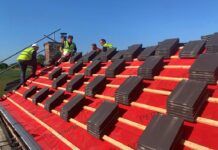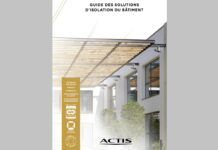John Forster, chairman of the Forster Group, speaks with RCI about his time in the industry and what can be done to get people to interested in roof-top solar applications.
How did you first get started in the industry and to your current position?
My initial years with the Scotcem Roof Tile manufacturing business provided invaluable experience. Time spent building better links between manufacturer, labour-only contractors and their end customers revealed the potential of satisfying a clear demand for service-focused, quality-orientated, integrated roofing solutions. This was the foundation for the original Forster Roofing ethos and one that remains core to the Forster Group business that I still chair 33 years later.
How did your previous roles prepare you for what you’re doing now?
Having spent almost my entire career building the Forster business, life has been a great educator, and still is today. Roofing seemed an obvious choice for me as I wanted to join an industry which helped to protect the buildings and structures that we all rely upon.
Early in my career, I was surprised how relatively little standing we often seemed to have as a trade, when we were a key service provider to the built environment. My perception of that challenge, along with a desire to make things better, has remained a constant throughout.
I am passionate about roofing and its charge to innovate and drive up standards. Since 2006, our particular focus has been developing the essential role for roofing in meeting the challenge we all face to achieve Net Zero.
What has been the highlights of your career so far?
With an exceptional team in the Forster business, there have been many highlights. We’ve been fortunate to win several national and regional awards. From outstanding heritage work to our commitment to innovation and advances in technology, we’ve made some ground-breaking achievements in education and skills, particularly through our Skills Academy.
A particular highlight in the early 90’s was the launch of our dedicated customer care service and our unique annual Health & Safety training programme.
From the mid 90’s, it was helping drive the early, wide-spread adoption of dry-fix products in Scotland’s house building sector, so that by 2001 Scotland was almost entirely maintenance free. The first half of the 2000’s was headlined by the success of our roofing merchants, Caledonian Roofing Supplies, becoming Scotland’s largest slate importers and subsequently sold to the CUPA slate group.
Meanwhile, our early investment in Net Zero technologies meant that by 2010 we were playing a leading role in the integration of solar with roofing, leading to our work on the 2014 Commonwealth Games Athletes Village in Glasgow.
It’s been incredibly motivating to work extensively with education and skills stakeholders over the last two decades which helped us launch our ground-breaking Skills Academy in 2015. In that same year, we led the launch of Scotland’s Solar trade body, now Solar Energy Scotland.
Finally, a more personal highlight of the past decade was my involvement in creating and leading Scotland’s Construction Innovation centre, which included three years as Governance Board Chair from 2018. In turn, reflecting a commitment that has led to our involvement in the one of the UK’s largest Modern Methods of Construction (MMC) Innovation projects, AIMCH, and the launch later this year of our unique new Integrated Solar and Roofing system.
What are the two key issues facing the future of the construction sector?
With the cost-of-living crisis impacting us all, the transition to Net Zero will increasingly be seen in 2023 as the biggest challenge for the Built Environment in living memory. We’re looking for the joined-up thinking that’s been lacking to date, that will give clear direction to education, industry, investors, innovators and stakeholders. We also need to set clear, consistent and integrated standards that drive innovation and investment from industry and the public sector alike.
Furthermore, heritage skills must always be protected and promoted, however adapting to MMC is essential for the skilled workforce of the future. Once in a generation, change is here to stay, with the inevitable adoption of digital, off-site manufacturing, automation, and low carbon technology. Whether we are upskilling or attracting an energised new generation, a career in roofing has never looked more appealing.
How do we get the public more interested in roof-top solar power?
With prices for traditional carbon-based energy soaring, consumers are quickly realising that this continued increase isn’t sustainable and are looking to the government and policy makers for help. Our sector urgently needs more engagement and willingness from the government to drive forward the change that is needed and give solar a full seat at the table.
Hence, public interest in solar is greater now than at any time in the last 10 years. From here, we can, together, champion a smart transition for an affordable, flexible energy future by educating policymakers, the public and industry on how they can use solar.




